What’s New in Dell PowerStoreOS 3.6?
Release contains diversified feature set in categories such as hardware, data protection, NVMe/TCP, file, and serviceability.
This is a Press Release edited by StorageNewsletter.com on October 20, 2023 at 2:01 pm![]() By Louie Sasa, senior engineering technologist, Dell Technologies, Inc.
By Louie Sasa, senior engineering technologist, Dell Technologies, Inc.
Dell PowerStoreOS 3.6 is the latest software release on the PowerStore platform.
This release contains a diversified feature set in categories such as hardware, data protection, NVMe/TCP, file, and serviceability.
The following list provides a brief overview of the major features in those categories:
- Hardware: PowerStoreOS 3.6 introduces the anticipated Data-In-Place (DIP) upgrade feature, which allows users to perform a hardware refresh while remaining online, with no downtime or host migration.
- Data protection: It now includes support for Metro Witness Server, which allows users to configure a fully active-active configuration for metro volumes across 2 PowerStore clusters – with more intelligent failure handling, resiliency, and availability during an unplanned outage.
- NVMe/TCP enhancements: Users now have the option to use NVMe storage containers to support host access through the NVMe/TCP protocol for vVols.
- File: Administrators can perform DR tests within a network bubble, while using an identical configuration as their production NAS server environment.
- Serviceability: To build on the existing remote syslog implementation, PowerStore alerts can now be forwarded to 1 or more remote syslog servers in PowerStoreOS 3.6. The following sections also provide information about the Non-Disruptive Upgrade (NDU) paths to the PowerStoreOS 3.6 release.
Hardware:
Data-In-Place (DIP) upgrades
Data-In-Place upgrades allow users to convert their PowerStore appliance from a PowerStore x000T model to a PowerStore x200T model. This is a non-disruptive process because only a single node is upgraded at a time, while the other node continues to service host I/O. Data-In-Place upgrades are performed easily through PowerStore Manager’s Hardware tab.
Click to enlarge
The following table outlines the supported Data-In-Place upgrade paths from the source to target models. For PowerStore 9000T models, only block-optimized upgrades are supported to the PowerStore 9200T model. When upgrading a PowerStore 3000T to a PowerStore 5200T model, additional NVRAM drives are required. When upgrading from a PowerStore 5000T model to a PowerStore 9200T model, a power supply upgrade may also be required.
Note: * Denotes only block-optimized upgrade is supported
Data protection
Metro Witness server support
Metro Volume support was introduced in PowerStoreOS 3.0. Since PowerStoreOS 3.0, Metro Volumes required manual intervention to fail over if the preferred site went down. PowerStoreOS 3.6 introduces the Metro Witness server feature. The Metro Witness server runs software that automatically forces the non-preferred site to remain online and service I/O if the preferred site were to go offline.
The Metro Witness software is a distributed RPM package available for Linux SLES or RHEL distributions. The RPM can be deployed on a bare-metal server or a VM. The Metro Witness server and software can be set up in minutes.
Click to enlarge
NVMe/TCP enhancements
NVMe/TCP for Virtual Volumes (vVols)
NVMe is transfer protocol that is designed for connecting SSDs to PCIe buses. NVMe-oF is an extension of the NVMe protocol to both TCP and FC data streams. PowerStore currently supports both TCP and FC as NVMe-oF transports.
With the VMware vSphere 8.0U1 release, VMware introduced NVMe/TCP support for vVols. As the request for NVMe/TCP support grows, PowerStoreOS 3.6 expands its existing NVMe/TCP support to vVols as well! With this feature, PowerStore will be the industry’s 1st array to support NVMe/TCP for vVols [1].
Click to enlarge
From a performance perspective, NVMe/TCP is comparable to FC. From a cost perspective, NVMe/TCP infrastructure is cheaper than FC and can leverage existing network infrastructure. NVMe/TCP has a higher performance benefit than iSCSI and has lower hardware costs than FC. With the addition of NVMe/TCP support for vVols in PowerStoreOS 3.6, we combine performance, cost, and storage/compute granularity for system administrators.
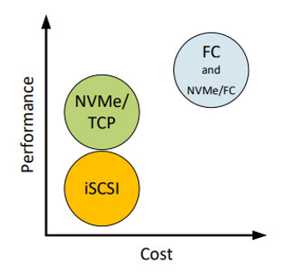 File
File
DR tests within network bubble
Many organizations are required to run DR tests using the exact same configuration as production. This includes identical IP addresses and fully qualified domain names. Running these types of tests reduces risk, increases reproducibility, and minimizes the chance of any surprises during an actual DR event.
These DR tests are carried out in an isolated environment, which is completely siloed from the production environment. Using network segmentation for proper isolation allows there to be no impact to production or replication. This allows users to meet the requirements of using identical IP addresses and FQDNs during their DR tests.
In PowerStoreOS 3.6, the appliance offers the file capability to create a Disaster Recovery Test (DRT) NAS server with a DR test interface. These DRT NAS servers permit a user to create a NAS server with an identical configuration as production, including the ability to duplicate IP addresses.
Note: DRT NAS servers and interfaces can only be configured using the CLI or REST API.
Click to enlarge
Remote Syslog support for PowerStore alerts
PowerStoreOS 2.0.x introduced support for remote syslog for auditing.
These audit types included:
- Config
- System
- Service
- Authentication/Authorization/Logout
PowerStoreOS 3.6 has added support for forwarding of system alerts as well. This equips system administrators with more versatility to monitor their PowerStore appliances from a centralized location.
Upgrade Path
The following table outlines the NDU paths to upgrade to the PowerStoreOS 3.6 release. Depending on your source release, it may be a one or two step upgrade.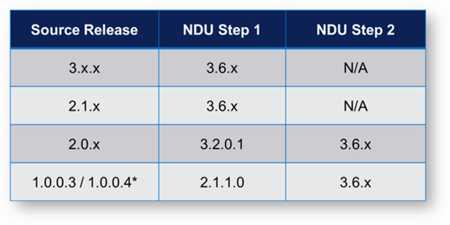
Note: * Denotes source release is not supported on PowerStore 500T models
Conclusion
The PowerStoreOS 3.6 release offers numerous feature enhancements that are unique and deepen the platform.PowerStore is deployed in over 90% of Fortune 500 vertical sectors[2] [1]. With PowerStore continuing to deliver on hardware, data protection, NVMe/TCP, file, and serviceability in this release, the product is adaptable and versatile in modern IT environments.
[1] PowerStore is the industry’s first array to support NVMe/TCP for vVols. Based on Dell internal analysis, September 2023.
[2] As of January 2023, based on internal analysis of vertical industry categories from 2022 Fortune 500 rankings.
Resources:
For additional information about the features described in this blog, plus other information about the PowerStoreOS 3.6 release, see the following white papers and solution documents:
Dell PowerStore: Introduction to the Platform
Dell PowerStore Manager Overview
Dell PowerStore: File Capabilities
Dell PowerStore: Replication Technologies
Dell PowerStore: Virtualization Integration
Dell PowerStore: Metro Volume
Dell PowerStore: VMware vSphere Best Practices
Dell PowerStore: VMware Site Recovery Manager Best Practices
Dell PowerStore: VMware vSphere with Tanzu and TKG Clusters
NVMe Transport Performance Comparison
What’s New in PowerStoreOS 3.5?
PowerStore Simple Support Matrix
PowerStore: Info Hub – Product Documentation and Videos
Dell Technologies PowerStore Info Hub








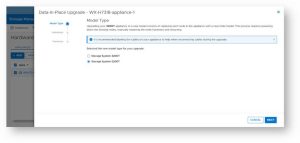
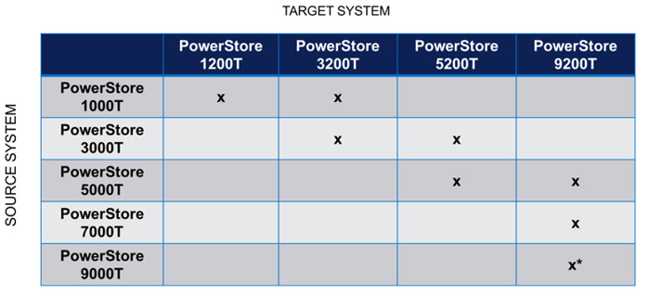
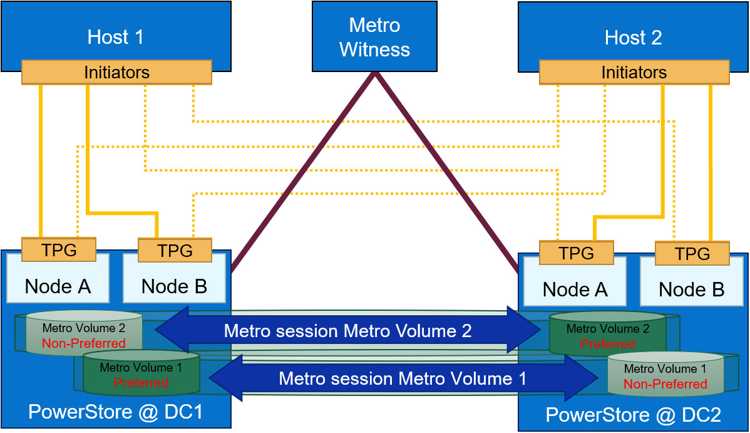
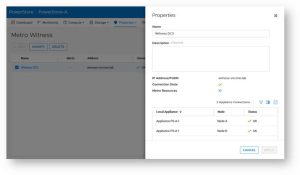
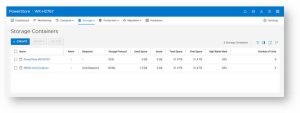







 Subscribe to our free daily newsletter
Subscribe to our free daily newsletter

